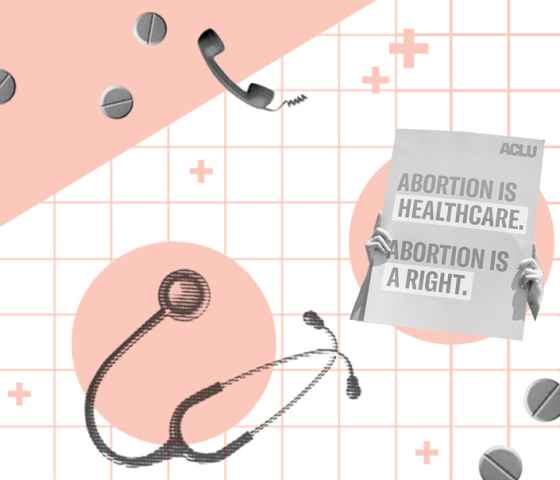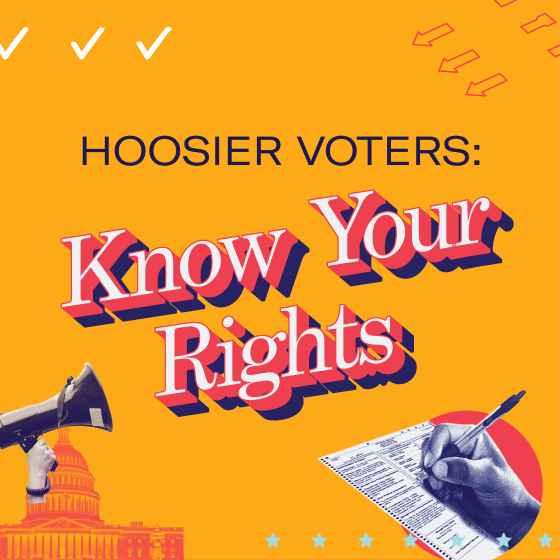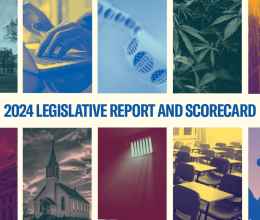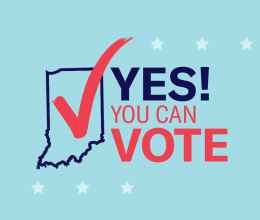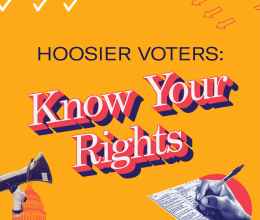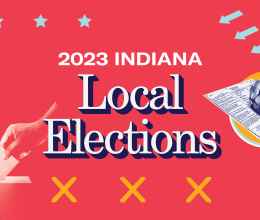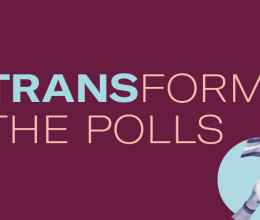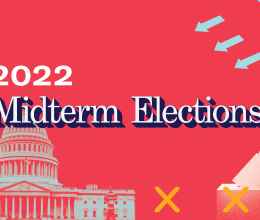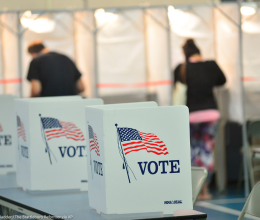Soon-to-be law HB 1264 aims to address an issue that receives disproportionate attention despite its rarity: voter fraud. This new law, passed by the Indiana legislature this year, will add yet another hurdle for eligible Hoosier voters, inevitably preventing some people from exercising their constitutional right to vote.
One section of HB 1264 will require voting officials to verify citizenship by comparing the statewide voter registration system with the BMV list of temporary credentials given to noncitizens. If there is a discrepancy and it appears that a person registered to vote is not a U.S. citizen, that person must show proof of citizenship within thirty days of being notified. If they are unable to show proof within thirty days, their registration will be canceled.
The cross-referencing process outlined in this law is destined for errors. As a result, people who are U.S. citizens would not be allowed to vote due to an error in the system or if they are unable to obtain proof of citizenship documents within thirty days.
Mistakes in data entry, administrative glitches, or discrepancies will falsely flag legitimate voters as noncitizens. This could lead to individuals who are U.S. citizens being wrongfully purged from the voter rolls and barred from exercising their right to vote.
For some Hoosiers, obtaining the necessary documentation to verify their citizenship may not be a straightforward process. Delays in obtaining birth certificates or naturalization papers, bureaucratic hurdles, or financial constraints could hinder their ability to comply with the deadline imposed by the law. Individuals who are eligible to vote may find themselves disenfranchised simply due to logistical challenges.
Beyond the citizenship verification aspect, HB 1264 also includes provisions related to proof of residency.
For college students, many of whom may reside in temporary or dormitory-style accommodations, proving residency could be particularly challenging. Similarly, individuals experiencing homelessness may lack the necessary documentation, such as utility bills or lease agreements to establish residency.
We also know that this law will disproportionately affect communities of color. Rates of identification-ownership are highest among white individuals, while other racial and ethnic groups disproportionately lack necessary photo ID.
The ACLU of Indiana strongly believes these bureaucratic hurdles will prevent eligible voters from exercising their rights.
Frankly, this law is addressing a problem that does not exist. Indiana elections are already safe and secure. The Heritage Foundation, a conservative-leaning think tank, tracks instances of voter fraud. In the last 20 years, this group documented just 47 cases of criminal voter fraud in the state. For comparison, over 3 million Hoosiers voted in the 2020 general election alone.
While the goal of ensuring election integrity is undoubtedly important, it must not come at the expense of disenfranchising eligible voters in a state where voter turnout is among the worst in the country.
In 2020, 61% of the voter population in Indiana turned out to vote, ranking our state at 46th in the country for voter turnout. In 2022, Indiana had the lowest voter turnout of any state in the country. Indiana legislators should be making efforts to expand access to the polls rather than sowing doubt in our elections and further disenfranchising Hoosier voters — the future of our democracy depends on it.
Indiana’s new election law is a step backwards in the effort to protect voting rights and work towards solutions that foster inclusivity, rather than exclusion, in our democratic process.
